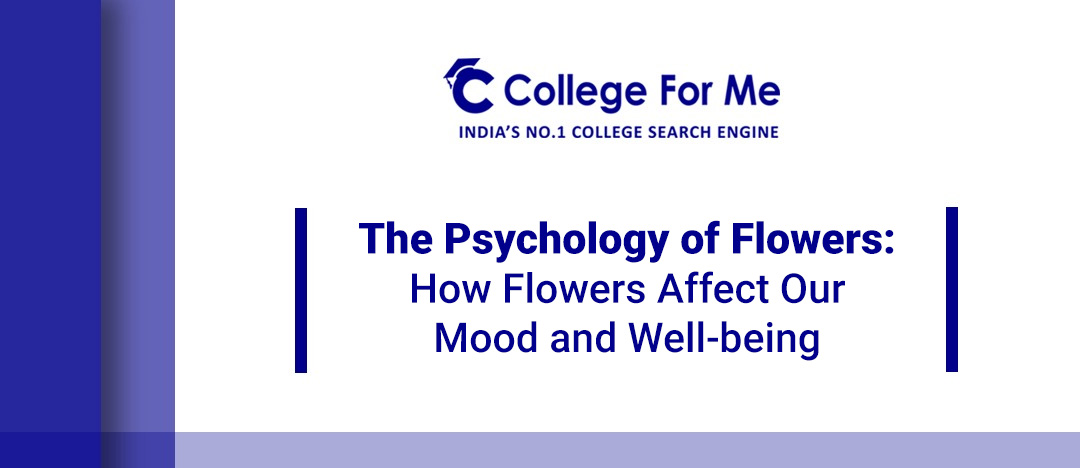Career Scopes Of A B.Tech. Student
There is a high demand for B.Tech. degree holders in the private sector, yet, there is also the opti...

Flowers have a unique ability to brighten up our day, evoke emotions, and even alter our mood. This extraordinary power goes beyond mere aesthetics; it delves into the fascinating realm of psychology. The study of how flowers affect our mood and well-being is a captivating journey into the subtle ways nature can impact our emotions and mental health.
The Visual Symphony: Aesthetic Appeal
First and foremost, flowers are a feast for the eyes. Their vibrant colors, delicate petals, and intricate patterns can captivate even the most stoic of individuals. A colorful bouquet in a room instantly transforms the environment, creating a positive atmosphere. This visual stimulation triggers the release of dopamine, the "feel-good" neurotransmitter, contributing to an improved mood and heightened sense of pleasure.
The Scent of Serenity
It's not just the sight of flowers that affects our psyche; their fragrances play a significant role too. The olfactory system is closely linked to the brain's emotional centers, making scents powerful triggers for memories and emotions. The fragrance of a fresh bouquet of flowers can transport us to pleasant memories, reduce stress, and promote relaxation. For instance, the scent of lavender is well-known for its calming effects, while the aroma of roses is associated with love and happiness.
Nature's Stress Buster
Modern life is often filled with stressors, and the presence of flowers can act as a natural stress buster. Research has shown that the sight of flowers can reduce stress levels, lower blood pressure, and alleviate anxiety. Flowers in the workplace have been found to boost productivity and increase job satisfaction. Their presence reminds us of the beauty and tranquility of nature, offering a much-needed respite from the hustle and bustle of daily life.
A Symbol of Love and Connection
Flowers have long been a symbol of love and connection. Gifting flowers is a common expression of affection, and receiving them can foster feelings of love and appreciation. Studies have demonstrated that the act of giving and receiving flowers can strengthen social bonds, enhance relationships, and promote feelings of well-being.
The Healing Power of Horticultural Therapy
The therapeutic benefits of engaging with plants and flowers are well-documented in horticultural therapy. This specialized form of therapy harnesses the healing properties of plants to improve mental and emotional well-being. It has been shown to reduce symptoms of depression, boost self-esteem, and increase overall life satisfaction. Gardening and tending to flowers provide a sense of accomplishment and a connection to the natural world.
Cultivating Positivity
In a world that often feels fast-paced and stress-filled, the psychology of flowers reminds us of the importance of connecting with nature. Their visual beauty, aromatic allure, and symbolic significance have a profound impact on our mood and well-being. So, the next time you encounter a vase of freshly cut flowers or take a stroll through a garden, pause to appreciate the intricate interplay between nature and your emotions. In their delicate petals and fragrant essence, flowers offer a reminder that even in the midst of life's challenges, there is always beauty and serenity to be found.

There is a high demand for B.Tech. degree holders in the private sector, yet, there is also the opti...

If you are looking for a bright and prospective career, then getting a B.Tech. in CSE must be under ...
Comments (0)